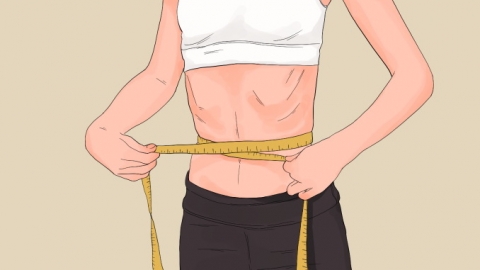What causes weight loss in patients with gallstones?
Weight loss in patients with gallstones may be caused by excessive dietary restriction, increased physical activity, cholecystitis, bile stasis, or digestive dysfunction. This can be improved through dietary adjustments, appropriate exercise, medication, and enhanced digestion. If weight loss continues to worsen or is accompanied by abdominal pain or jaundice, prompt medical attention is necessary.

1. Excessive dietary restriction: Due to fear of gallstone attacks, long-term strict limitation of fat and protein intake can lead to insufficient caloric and nutritional intake, resulting in gradual weight loss, possibly accompanied by fatigue and poor mental state. It is recommended to adjust the diet under medical guidance, ensuring adequate intake of high-quality protein and healthy fats, and balanced nutritional supplementation.
2. Increased physical activity: A sudden increase in exercise to control body weight or improve health may raise energy expenditure, while inadequate energy replenishment leads to weight loss, possibly accompanied by significant post-exercise fatigue. It is advisable to gradually increase activity levels according to individual capacity, promptly replenish carbohydrates and protein after exercise, and avoid excessive energy consumption.
3. Cholecystitis: Gallstones blocking the cystic duct can trigger gallbladder inflammation. The inflammation impairs gallbladder contraction and causes abnormal bile secretion, affecting food digestion and absorption, leading to weight loss, often accompanied by right upper abdominal pain and nausea. Under medical supervision, patients may take medications such as cefuroxime axetil capsules, anti-inflammatory and bile-promoting tablets, or ursodeoxycholic acid capsules to alleviate symptoms.
4. Bile stasis: Gallstones obstructing bile outflow cause bile accumulation within the bile ducts, impairing fat digestion. Over time, this leads to malabsorption and weight loss, often accompanied by skin itching and pale stools. Under medical guidance, medications such as ademetionine disulfate 1,4-butanedisulfonate enteric-coated tablets, lithiasis-relieving and bile-promoting tablets, or ursodeoxycholic acid capsules may be used to relieve discomfort.
5. Digestive dysfunction: Gallstones disrupt normal bile excretion, reducing intestinal digestive enzyme activity. This results in incomplete food digestion and poor nutrient absorption, gradually causing weight loss along with bloating and diarrhea. As directed by a physician, medications such as compound digestive enzyme capsules, multienzyme tablets, or quadruple probiotic preparations containing Bifidobacterium may be used to improve symptoms.
Daily care should include regular meals and avoidance of overeating; choosing low-fat, easily digestible foods with small, frequent meals; maintaining a healthy sleep schedule and avoiding late nights to support nutrient absorption and overall recovery.





